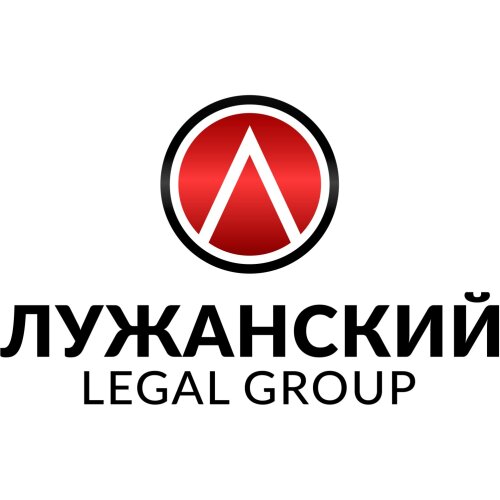Best Child Abuse Lawyers in Kyrgyzstan
Share your needs with us, get contacted by law firms.
Free. Takes 2 min.
Free Guide to Hiring a Family Lawyer
Or refine your search by selecting a city:
List of the best lawyers in Kyrgyzstan
About Child Abuse Law in Kyrgyzstan
Child abuse is a serious issue in Kyrgyzstan, with cases ranging from physical, emotional, sexual, and neglectful abuse. The country has laws in place to protect children and punish abusers, but navigating the legal system can be complex.
Why You May Need a Lawyer
If you suspect or have evidence of child abuse, it is crucial to seek legal advice to protect the child and ensure the abuser is held accountable. A lawyer can help you understand your rights, navigate the legal process, and fight for justice on behalf of the child.
Local Laws Overview
Key aspects of Kyrgyzstan's laws on child abuse include mandatory reporting requirements for healthcare professionals, educators, and social workers; criminal penalties for perpetrators; and protective measures for victims. It is important to be familiar with these laws to ensure proper action is taken in cases of child abuse.
Frequently Asked Questions
1. What constitutes child abuse in Kyrgyzstan?
Child abuse in Kyrgyzstan includes physical, emotional, sexual, and neglectful abuse against a child under the age of 18.
2. How can I report child abuse in Kyrgyzstan?
You can report child abuse to local authorities, including the police, social services, or child protection agencies. It is important to act quickly to protect the child.
3. What legal options do I have if my child is being abused?
You can seek a protection order, file criminal charges against the abuser, and pursue civil action for damages on behalf of the child with the help of a lawyer.
4. Can I remain anonymous when reporting child abuse?
While it is ideal to provide your contact information for follow-up, you can request to remain anonymous when reporting child abuse in Kyrgyzstan.
5. What are the penalties for child abuse in Kyrgyzstan?
Perpetrators of child abuse in Kyrgyzstan can face imprisonment, fines, and other penalties depending on the severity of the abuse.
6. Can I get legal aid for child abuse cases in Kyrgyzstan?
Legal aid is available for individuals who cannot afford a lawyer in cases of child abuse. You can contact legal aid organizations for assistance.
7. How long does it take to resolve a child abuse case in Kyrgyzstan?
The time frame for resolving a child abuse case in Kyrgyzstan varies depending on the complexity of the case, the legal process, and other factors. It is important to be patient and cooperate with authorities.
8. Can I sue someone for falsely accusing me of child abuse?
If you have been falsely accused of child abuse, you can take legal action against the accuser for defamation or false reporting. A lawyer can help you navigate this process.
9. What are my rights as a parent if my child is being abused?
As a parent, you have the right to protect your child from abuse, seek legal action against the perpetrator, and support your child throughout the legal process. It is essential to seek legal advice to understand your rights fully.
10. How can I support a child who has been abused in Kyrgyzstan?
You can provide emotional support, seek professional help for the child, and advocate for their rights throughout the legal process. It is essential to prioritize the child's well-being and recovery.
Additional Resources
For additional resources on child abuse in Kyrgyzstan, you can contact the Ministry of Education and Science, the Ministry of Health and Social Development, and local child protection agencies. Legal aid organizations and non-profit groups may also provide support and information.
Next Steps
If you suspect or have evidence of child abuse in Kyrgyzstan, it is crucial to seek legal advice promptly. Contact a lawyer specializing in child abuse cases to understand your rights, protect the child, and hold the abuser accountable. Remember that the well-being of the child should be the top priority in all actions taken.
Lawzana helps you find the best lawyers and law firms in Kyrgyzstan through a curated and pre-screened list of qualified legal professionals. Our platform offers rankings and detailed profiles of attorneys and law firms, allowing you to compare based on practice areas, including Child Abuse, experience, and client feedback.
Each profile includes a description of the firm's areas of practice, client reviews, team members and partners, year of establishment, spoken languages, office locations, contact information, social media presence, and any published articles or resources. Most firms on our platform speak English and are experienced in both local and international legal matters.
Get a quote from top-rated law firms in Kyrgyzstan — quickly, securely, and without unnecessary hassle.
Disclaimer:
The information provided on this page is for general informational purposes only and does not constitute legal advice. While we strive to ensure the accuracy and relevance of the content, legal information may change over time, and interpretations of the law can vary. You should always consult with a qualified legal professional for advice specific to your situation.
We disclaim all liability for actions taken or not taken based on the content of this page. If you believe any information is incorrect or outdated, please contact us, and we will review and update it where appropriate.
Browse child abuse law firms by city in Kyrgyzstan
Refine your search by selecting a city.









